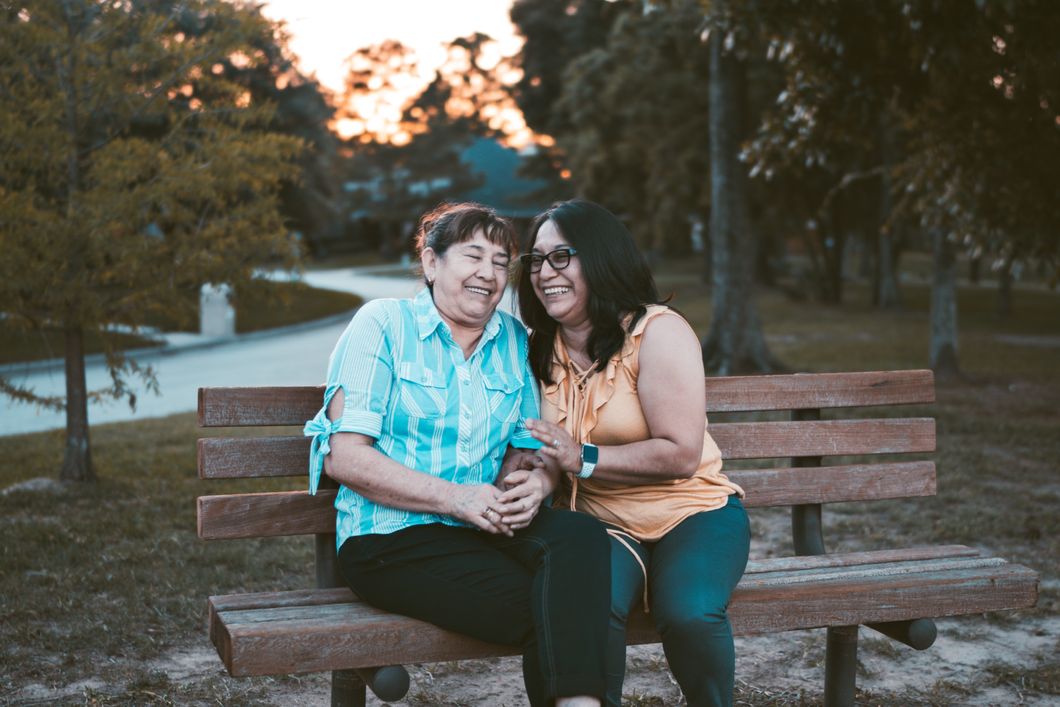As you mature into adulthood, friendships and relationships grow more complicated and stressful. It's almost like an additional job to be there for others. But it's not (a job, that is). Having friends is not what you do to make sure your bills are paid (although—how fun would that to be a professional friend?!). Having friends is about meeting your emotional needs.
Keeping a friendship alive means checking in and wondering what news they have this week. The best kind of friendships encourage you to go for that job interview or call that cute guy back. They also can give you advice that borders on heavy criticism in the hopes that you become a stronger person.
Now that I'm graduated and officially an adult, I'm ashamed to say that I've put my friends on the side for my job. I don't mean to make my friends feel like they are less than what I do. In fact, that is not it whatsoever. They mean the world to me. But when I don't have the control of my schedule or my job demands are high, they are the first thing to be affected. I try to reach out. But their schedules and job demands affect them too; sometimes, a text goes unanswered for weeks.
Adult friendships are hard to keep and maintain but when you have these five tips in your mind, you will realize that your friendships will be worth all the effort.
1. Don't rely solely on social media or online sites to make friends.
It's become easier to find support and community online these days. All we need is to create a social media account. While it's great to share our lives with strangers, it's not realistic whatsoever. We share our stories over time with people, not during a ten-hour conversation. Also, the dangers of catfishing are very real.
2. Expect some attempts at friendship to fail.
You don't marry the first person you date, so why should you be best friends forever with the first person you meet? These failed attempts will help you refine your friend search and will get you closer to finding the right friend.
3. Know that transitions are normal and push through it.
When a major life event happens – a new job, a move to a new city, marriage, birth of a child – your friendships tend to be affected. This realization that we have lost friends due to transitions makes us feel guilty but it has nothing to do with us. Friendships that push through the challenge emerge better off than before, but don't be embarrassed if it doesn't last.
4. Being in a community helps.
Whether it is a workplace community or an interest community such as dance, a community helps you feel a greater purpose and connection to others. It helps you go beyond individual relationships and build a relationship with a group of people with similar interests.
5. Following up with a friend is so important.
While small talk is great to start a friendship, some people become trapped at this level. They are uncertain of how to talk about deeper, more important subjects. Try to follow up on a conversation with something that was talked about in the last conversation; remember little things and ask about them. This personalization allows the friendship to develop into one that will last for years.
Remember that perfection in a friendship doesn't exist. You are bound to make mistakes and screw things up more than once. It's how you show your friend that you care about them despite it. The connection is more important than the mistake. If you mess something up, show them that you care with a handwritten, silly note or arrive at their door with their favorite candy. Just because you're an adult doesn't mean you need to sacrifice your friends for work. Everything is about balance, after all.
- How To Nurture Adult Friendships — Boston Mamas ›
- How to Make Friends as an Adult — and Why It's Important ›
- The Friendship Crisis: Making and Keeping Friends as an Adult ›
- Adult Friendships | HuffPost ›
- My Adult Friendships Taught Me 10 Things ›
- Adult Friendships Are Hard, But Are We Bad Friends? ›
- How Friendships Change Over Time - The Atlantic ›





 Lumiere figure at the Disney Store at the Ala Moana Shoppi… | Flickr
Lumiere figure at the Disney Store at the Ala Moana Shoppi… | Flickr








 StableDiffusion
StableDiffusion StableDiffusion
StableDiffusion 10. Extra BlanketsJuwenin Home 100% Cotton Knitted Throw Blanket
10. Extra BlanketsJuwenin Home 100% Cotton Knitted Throw Blanket StableDiffusion
StableDiffusion StableDiffusion
StableDiffusion File:Kishlaru familie.jpg - Wikimedia Commons
File:Kishlaru familie.jpg - Wikimedia Commons Photo by Hanna Balan on Unsplash
Photo by Hanna Balan on Unsplash StableDiffusion
StableDiffusion black blue and yellow round illustrationPhoto by
black blue and yellow round illustrationPhoto by 





 woman holding glass jar
Photo by
woman holding glass jar
Photo by 








